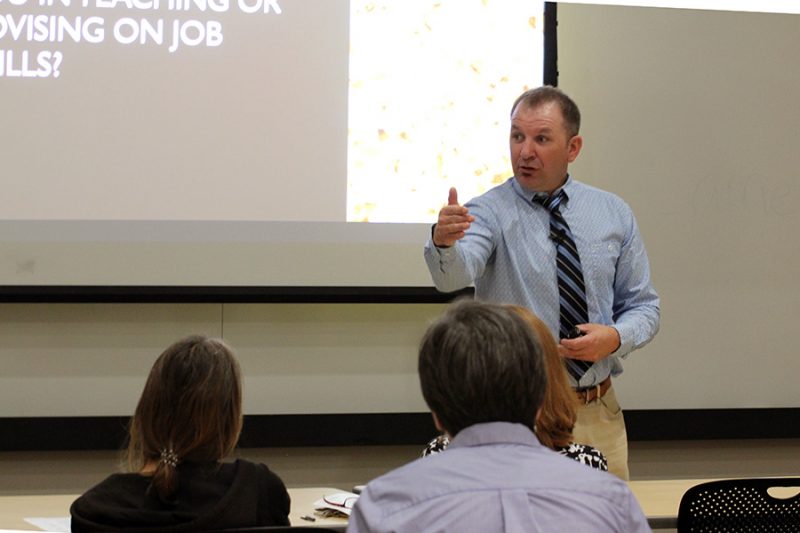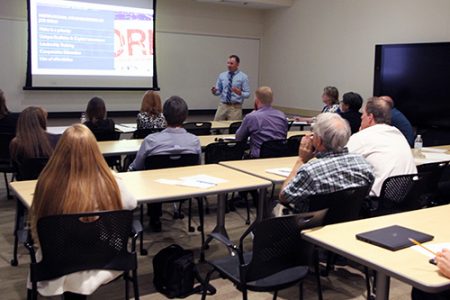


Published on September 26, 2019

Eastern hosted its first Faculty and Staff Development speaker of the semester on Sept. 25, who discussed job readiness and preparing students for the workforce. Aaaron Richmond, psychology professor and “employment expert” with Metropolitan State University of Denver, emphasized skills development and applied learning—two academic priorities at Eastern.
He described “the changing tide of preparing students for the workforce,” and said faculty need to think outside of their fields when it comes to job prospects for their students. “We need to get out of the mindset that psychology students will go into human resources,” he said, explaining that an education in psychology can be applied to a multitude of careers.
To help students realize the variety of employment options available to them, he said faculty need to teach skills, not just knowledge. Skills valued by employers include oral and written communication, teamwork, ethical judgement, critical thinking and the ability to apply knowledge to real-world settings—all available through Eastern’s liberal arts education.
Richmond discussed five broad skill categories—cognitive, communication, personal, social and technological—that encompass 17 sub-skills, such as creativity, adaptability, management and the ability to learn new technological systems.
The best practices for skills development in higher education, according to Richmond, include applied learning methods such as internships, service-learning projects and undergraduate research mentorships. The faculty affirmed that these practices are commonplace at Eastern.
The most common reason that recent graduates are dismissed from jobs, according to Richmond, is for not following directions—something that can be addressed by developing self-regulation and adaptability skills. Richmond challenged the faculty to pinpoint individual skills and design assignments that utilize them.
Among the greatest barriers to recent graduates securing gainful employment is the inability to articulate their skills. To address this, Richmond emphasized making skills development a priority at the institutional, departmental and course levels.
He suggested implementing “careers” courses for upperclassmen, job shadowing and curricular assessments. He also suggested having students create ePortfolios—an electronic display of their learning. For capstone courses, he suggested making resume writing and job searching a part of the coursework. For his own courses at MSU, Richmond includes a “critical statement” in the syllabus, which emphasizes the course’s goal to develop skills.
The Eastern faculty added that engaging alumni—particularly young alumni—is an effective resource, as their professional insights are more relatable to soon-to-be graduates.
Written by Michael Rouleau